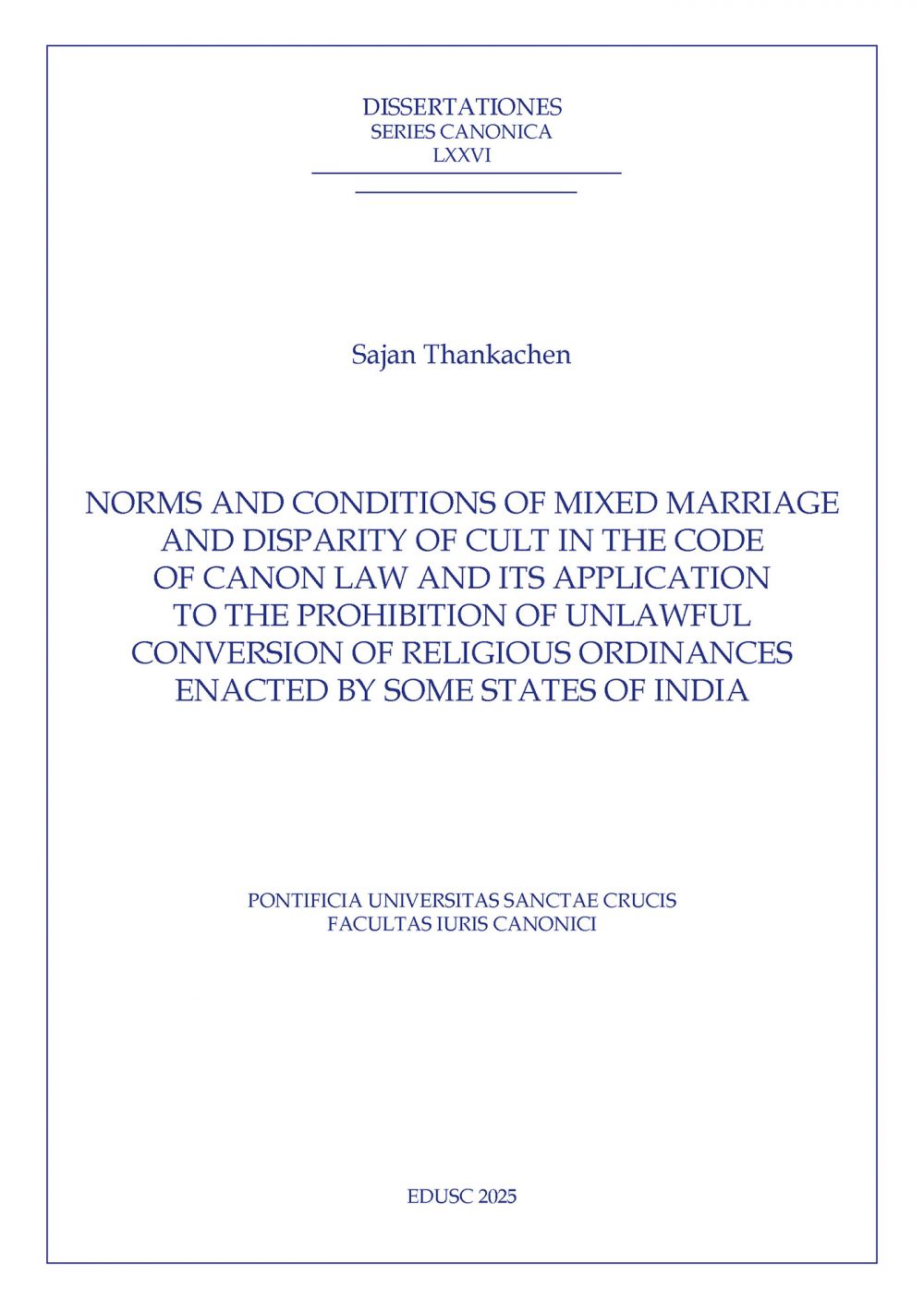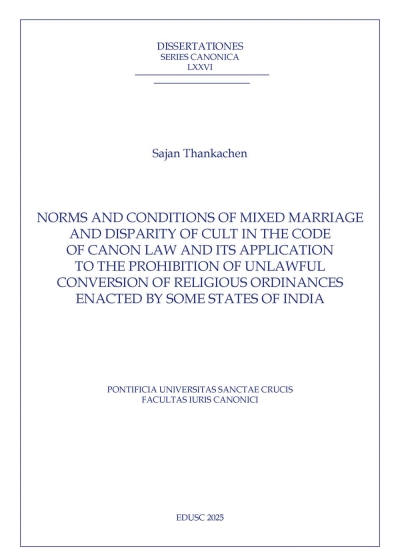Descrizione
This research examines the Catholic Church’s theological, canonical, and pastoral framework regarding interfaith marriages, with a particular focus on matrimonia mixta (marriages between a Catholic and a baptised non-Catholic) and matrimonia cum disparitate cultus (marriages between a Catholic and a non-baptised person). These forms of marriage, though requiring dispensations or permissions under the 1983 Codex Iuris Canonici, reflect the Church’s commitment to upholding the right to marry while maintaining fidelity to its sacramental theology. The study emphasises the Church’s pastoral approach, which seeks to balance doctrinal integrity with compassion and accompaniment, especially in today’s pluralistic societies. Church documents such as Gaudium et Spes and Familiaris Consortio affirm the right to marry and stress the importance of pastoral care and dialogue in interfaith unions.
The research also examines the challenges posed by India’s state-level anti-conversion laws, which, although intended to prevent coercion, often infringe on personal religious freedom and marital choice. These laws are frequently misused to target Christian communities, especially amidst suspicion surrounding interfaith marriages involving Catholics. Accusations that the Church uses such marriages for proselytisation are critically analysed and rebutted by examining the Church’s actual Canon Law requirements, which explicitly prohibit forced conversions and emphasise respect for the religious conscience of the non-Catholic spouse. Using both Church teachings and Indian legal realities, the thesis reveals how these laws can unjustly restrict the rights of Christians and create hurdles for interreligious families.
The final section presents a critical examination of the ethical and legal tensions between religious freedom, the right to marry, and state intervention in matters of faith and marriage. Drawing on international human rights frameworks and Catholic social teaching, the study underscores the incompatibility of anti-conversion laws with universally recognised personal freedoms. Real-life case studies illustrate the pastoral and legal difficulties encountered by clergy and laity in such situations. The thesis concludes with practical recommendations for the Catholic Bishops’ Conference of India (CBCI) and diocesan leadership, advocating for stronger pastoral support, legal literacy, and interreligious cooperation to safeguard the dignity and rights of Catholic spouses in mixed and interfaith marriages.



